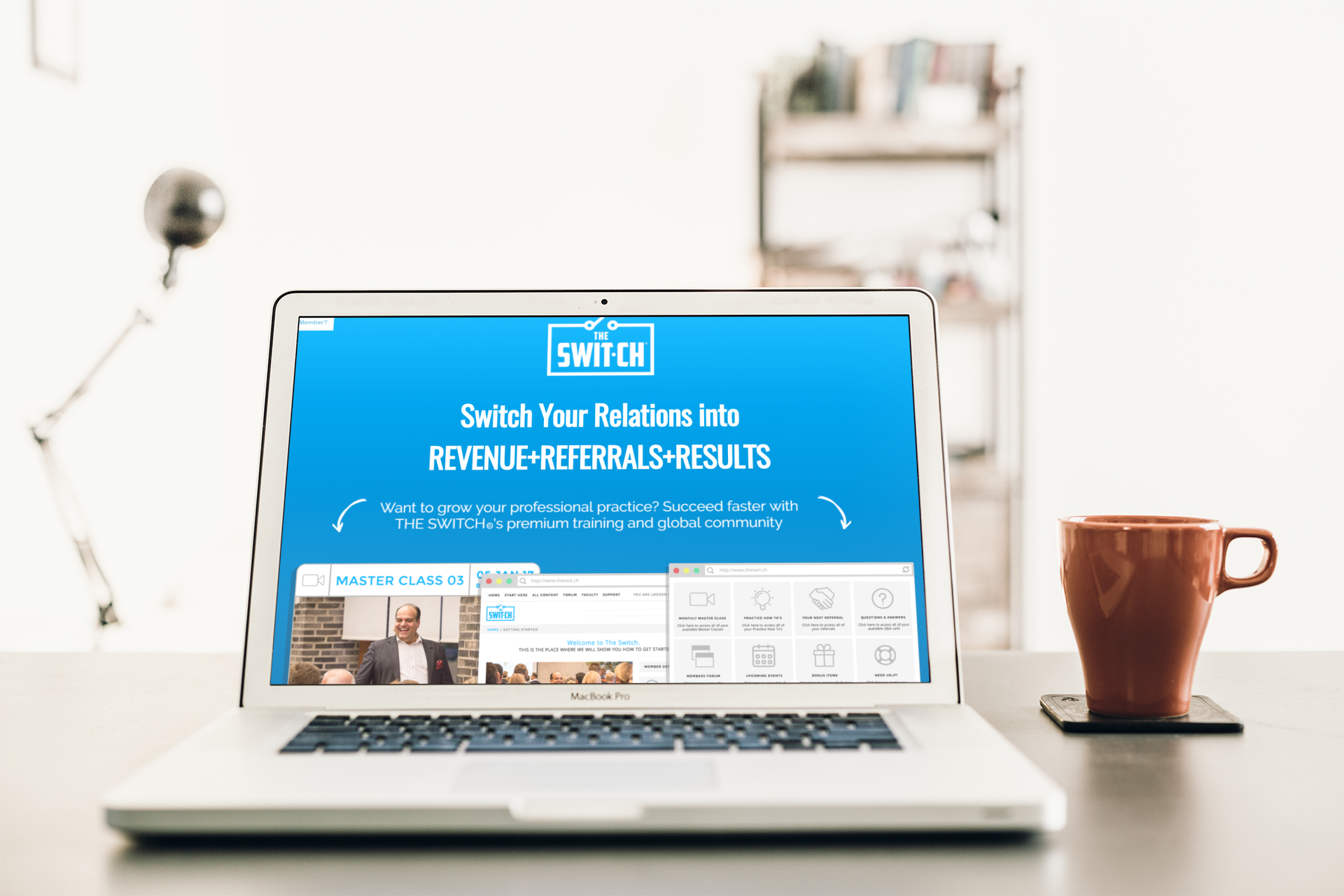The traditional method of generating referrals is rooted in the hard-sell tactic: Asking every client if they can send you new prospects. What you’re really asking is, “Since I’ve done a good job for you, is there anyone else you know that I can help.”
The problem isn’t effectiveness. The traditional method can work, but it’s awkward and unnatural. It feels too sales-y for most professionals (myself included), so they don’t want to do it.
Do you agree?
We all know that when you don’t want to do something – regardless of how much you need to do it – it gets done last. Or more often, it doesn’t get done at all.
This traditional method is based on clients giving something to you. But I don’t think you should wait for referrals to come to you sporadically — you should instead proactively seek them, no matter what industry you’re in.
What if your referral strategy was based on giving something to your clients?
This gives the other people value and it gives you unique positioning. You’re no longer positioned as ‘just another professional’, you’re positioned as an advocate for your clients and the market as a whole.
Getting the referral asking right is not complicated, but it does require an understanding of what makes people likely to give and accept a referral. you also need to understand how to ask for a referral at a time when we are most likely to be successful.
Here is my list of the top things you should avoid when you want to ask for referrals:
- Failing to ask. The number one reason professionals fail to get referrals is that they don’t ask. Many professionals don’t want to be seen as pushy or sales-y, or they don’t have faith in the process, or they simply don’t know how to ask. But remember if you don’t ask you don’t get it.
- Wrong timing. Asking for referrals is all about timing. You need to set the timing right. This means preparing the ground with a client and providing reminders throughout your service delivery that giving referrals is an integral part of the growth strategy of your practice.
- Not defining a good referral. Do you know the kind of clients you want to service? This is vital information to the ability to ask for referrals. . Unless our client knows who we are looking to meet, it is really difficult for them to identify the right people to refer, even if they might want to help you and your practice.
- Wrong message. You want the people that can refer you to know exactly what you do. I warmly suggest that you take some time to think about what message you give the people that you meet. Do they really understand what it is you do? Do they understand what you do well enough to tell others?
- Failing to stand out. You need to stand out. If you don’t know what makes you a professional, then you have some work to do. Start by thinking about what it is that makes you worth talking about. Your connections will talk about exceptional people. They talk about those who really stand out.
Referrals remain the lifeblood of professionals. Many professionals make the mistake of passively waiting for these referrals instead of actively asking for them. Instead, get your timing right by asking for a referral after you’ve built a relationship.
What are the lessons you learned while asking for referrals?
If you’re ready to learn the right process for asking for referrals and how to implement it right in your practice, check out this special episode of your Next Referral in our SWITCH membership.


